Focus
Your Present Location: HOME> Focus-
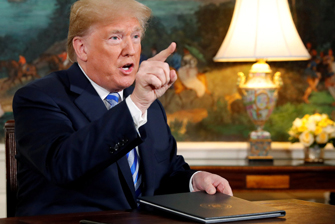
Hua Liming: Iran deal pullout brews trouble
US President Donald Trump pulled the United States out of the Iran nuclear deal and reimposed sanctions on the Middle East country on Tuesday. The deal, formally known as the Joint Comprehensive Plan of Action, was signed by the five permanent members of the UN Security Council (the US, Russia, China, Britain and France), Germany and Iran in Vienna on July 14, 2015, after 18 months of negotiations, and immediately approved by the Security Council.
2018-05-16 -
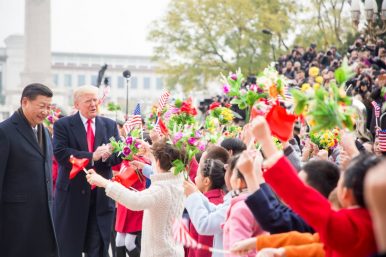
Chen Dingding: The Case of ZTE and US-China Relations
For almost 40 years, since China’s well-known”reform and opening” movement beginning in the late 1970s, the economic relationship has been the solid bedrock of a stable and largely cooperative U.S.-China relationship. Despite the recent complaints about being treated unfairly in each other’s markets, there is no denying that both Washington and Beijing have benefited tremendously from their economic interdependence.
2018-05-15 -

John Ross: US data shows no underlying economic acceleration under Trump
Given President Trump`s tax cuts, and his claim that he will strongly accelerate the U.S. long term annual average growth rate to 4 percent, or even higher, considerable attention is necessarily focusing on the latest U.S. GDP figures. Almost simultaneously the IMF published its new five-year prediction for U.S. economic growth. Taking these together therefore provides a significant opportunity to assess whether President Trump`s policies have succeeded in changing the growth path of the U.S. ec
2018-05-14 -
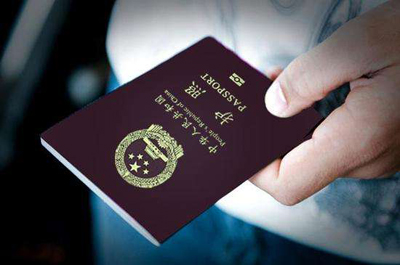
Bian Yongzu: Visa restrictions would hurt US more than China
On April 30, the New York Times reported something that could be bad news for China. It said that the White House is considering adjusting the US visa policy for Chinese citizens, with more limitations and checks to be conducted on Chinese academic researchers and employees of high-tech companies.
2018-05-09 -
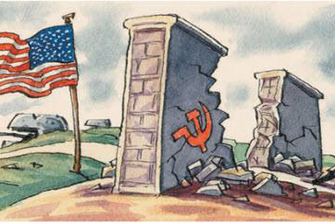
Liu Zhiqin: Vigilance needed as US shows true face of its capitalism
There were two meetings that took place in Beijing on May 4, 2018. One was a meeting to celebrate the 200th anniversary of the birthday of Karl Marx. The other was a smaller meeting held by a delegation of high-ranking US trade officials with their Chinese counterparts.
2018-05-09 -
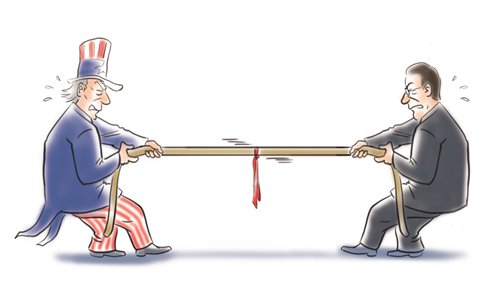
Zhao Minghao: Resolving China-US trade row a hard fight
The latest round of trade talks between China and the US has come to an end. Although the two countries didn`t sign any agreements, they exchanged ideas on issues including expanding US exports to China, bilateral services trade, two-way investment and protecting intellectual property. The two countries agreed to stay in close communication on relevant issues and establish a corresponding work mechanism.
2018-05-08 -
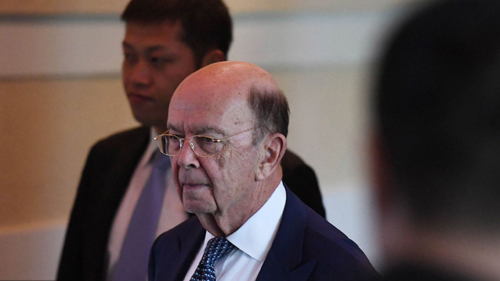
US-China trade dispute: Where there is no vision, the people perish
The recent trade dispute between China and the United States and the threat of the US sanctions on Chinese goods has fueled speculation of a trade war between the two most important economic powers in the world. While most experts are in agreement that such a trade war would be absolutely devastating for both countries, with no up-sides whatsoever, if a solution is not forthcoming at the present round of meetings between the two delegations in Beijing, the danger of such a trade war could be imm
2018-05-07 -
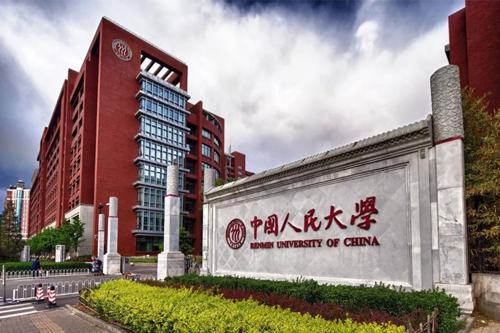
RUC`s Silk Road School MCCS Program 2018 Application Opens
The Master of Contemporary Chinese Studies (MCCS) is a key measure by Renmin University of China (RUC) to actively support the Belt and Road Initiative (BRI) in education. Following several years of preparation, the program leverages RUC’s educational platform, international operational experience and high-level think-tank resources to train future elite leaders for countries along the BRI that have a passion for Chinese culture, understand profoundly the path, model and experience of China’s de
2018-05-07 -

Liu Zhiqin: China must persuade US to abandon unfair 301 probe at talks
The trade delegation sent by the US government is set to arrive in Beijing on Thursday. Judging from the high-level organizational lineup, the US government is attaching tremendous importance to economic relations with China.
2018-05-03 -
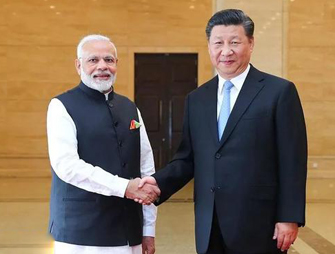
Liu Zongyi: China, India must strive for harmony
Chinese President Xi Jinping held an informal meeting with Indian Prime Minister Narendra Modi on Friday and Saturday in Wuhan, capital of Central China`s Hubei Province. This is the most inspiring diplomatic endeavor made by the two countries to mend ties since last year`s Doklam standoff. The meeting will exert enormous influence on Asia and the world.
2018-05-03 -
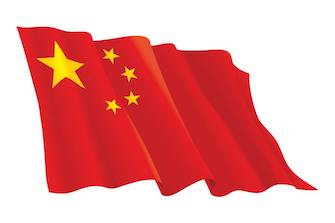
John Ross: China’s record in poverty reduction unparalleled in human history
Since China started the reform and opening-up drive nearly 4 decades ago, over 700 million Chinese have shaken off poverty, accounting for over 70 percent of global poverty reduction in the period.
2018-04-28 -

Jean-Guy Carrier: China’s rise a `win-win` for the world
The age of power and the big stick wielded by “the strong” are pitted today against the concept of win-win, which in the words of Laozi “benefits all things and does not compete with them”. More than ever, a dialogue with all nations will enable confrontations to be peacefully solved.
2018-04-27 -
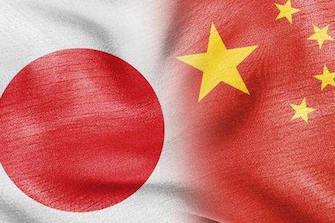
Ding Gang: How China, Japan can cooperate on B&R
The Belt and Road initiative was heatedly discussed at the ongoing China-Japan high-level think tank-media dialogues, reminding me of the European Coal and Steel Community, an organization set up in 1951 by six European countries to regulate their industrial production under a centralized authority.
2018-04-26 -
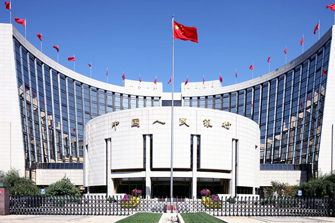
Further opening of China’s financial sector brings new opportunities to the world
“Opening-up is key to China’s economic growth over the past 40 years, and high-quality development of China’s economy in the future can only be achieved with greater openness”, said Chinese President Xi Jinping at the recent Boao Forum for Asia (BFA) Annual Conference 2018.
2018-04-24 -
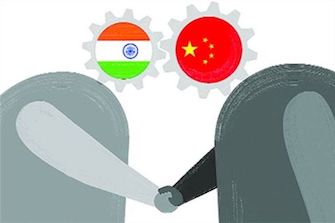
Liu Zongyi: India’s revised China policy tactical adjustment, not strategic change
The Doklam standoff between China and India last summer has set bilateral relations at a low ebb. The standoff has prompted the two countries to more seriously review each other and figure out each other`s strategic intentions.
2018-04-23 -

Han Hua: How can China implement supply-side reform in its film industry?
The year 2018 is very special to China, as it marks the 40th anniversary of the country’s reform and opening up. And after such time, with the relentless efforts of the Chinese people, China is one of the world’s economic leaders. The country is in a mood of reflection, while continuing to look forward. The goal is to emphasize that China’s influence on the world comes not only as a hard power, but as a soft power as well.
2018-04-20 -

Zhao Minghao: Syria strikes reveal growing Middle East rivalry
US, British and French forces fired over 100 missiles at Syria last weekend, accomplishing a so-called "perfectly executed strike." During his visit to Peru, US Vice President Mike Pence said the US was "prepared to continue this effort until we are assured that chemical weapons will never be used again against innocent civilians in Syria."
2018-04-18 -
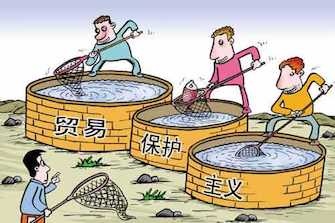
ZhangJingwei: US protectionism won’t hold back China’s rise
Trade protectionism is beneficial to certain economies in the short term, but it is detrimental to the global market. Therefore, trade protectionism is a utilitarian manifestation that lacks a global trade perspective, and the 10-year crisis cycle also showed that trade protectionism slowed the process of global economic recovery.
2018-04-17 -
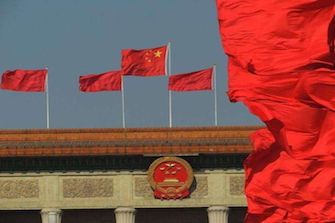
William Jones: China embarking on new phase of opening-up
The 40th anniversary of reform and opening-up makes 2018 a banner year for China. The commitments made at this year’s National People’s Congress for a deepening of the “reform and opening up” policy also characterize a “new era” in the development of the People’s Republic of China.
2018-04-16 -
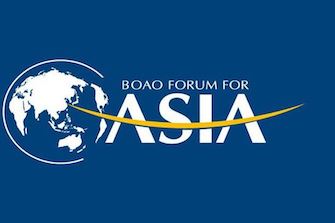
John Ross: Xi`s Boao Forum speech shapes globalization agenda
In short, China`s national line of advance falls firmly in line with globalization, and with the principles that China`s national interests are complimentary to other countries` interests, and that national self-interest is the firmest guarantee that a course will be pursued.
2018-04-16
























































































 京公网安备 11010802037854号
京公网安备 11010802037854号





